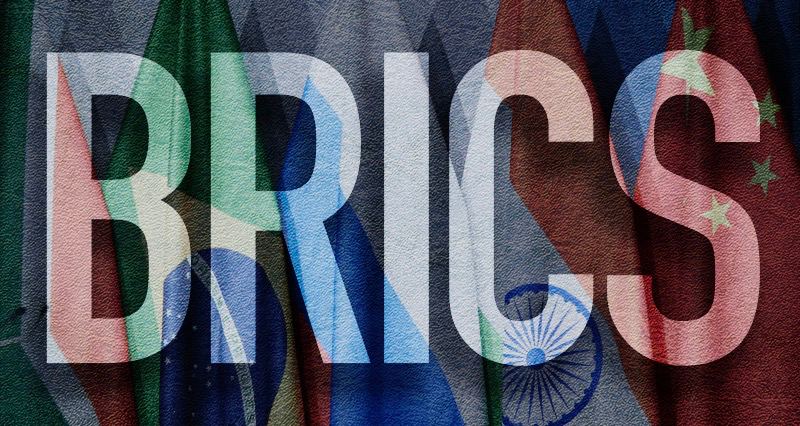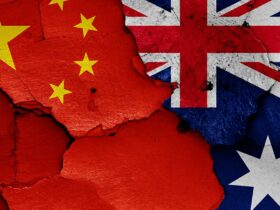Evidence found by archaeologists and other specialists in Western Asia shows that as far back as three millennia ago there were ties of friendship, as well as alliances and commitments to establish limits, mutual defense agreements and cooperation mechanisms between Sumerians, Egyptians, and Babylonians, Assyrians and Medea.
Likewise, it is known that in Asia, Africa and America, as well as in the Greek city-states or in Europe prior to the existence of the Roman Empire, there were manifestations of relations between political actors from different regions. In more recent times, the Ming dynasty in China (1368-1644), which led a powerful empire considered the most advanced of the 16th century, managed to consolidate ties with states located in its surroundings.
In the West, sovereign states began to emerge in the 15th century, but it was two centuries later, after the Peace of Westphalia (1648), when an international society was consolidated more or less in the terms that still exist. The preponderance of the West since then and the imposition of a Eurocentric world meant that – by reason or by force – the European model (values, institutions, rules, and practices) expanded and became universal.
Thus, to the extent that national states emerged and made links with other peers, “inter-national” relations were established to formally manage these ties. Diplomacy was the instrument created to legalize these relationships. Etymologically, the word diplomacy comes from the Greek verb “diploun” which means to fold and referred to the folded document that the messenger of one sovereign carried to another. But it can also be interpreted as the action of bending in two, in order to achieve a goal.
So, diplomacy is a medieval institution… and in some ways it still is. It must be remembered that the kings were “God’s messengers to Earth” so, when choosing a person to represent him outside the territory of the kingdom, he had to choose an immaculate citizen who received the category of “most excellent.” Likewise, given that communications were very slow and dangerous, the monarchs granted special and absolute powers so that, acting on their behalf, these envoys could make decisions when the situation warranted it. That is why they were “extraordinary and plenipotentiary” ambassadors. None of that happens today in times of the Internet when communications are immediate and permanent.
But in past times, diplomacy emerged as the activity carried out by heads of state and specialized institutions to execute policy outside their own territory. Diplomacy was responsible for defending the interests and rights of States, their institutions and citizens abroad. Nowadays, that has become a chimera, since there are other actors and other instruments through which foreign policy is executed. The chancelleries and, with them, the embassies are rapidly losing relevance in an unstoppable trend towards their disappearance. Be careful, not necessarily, I am saying that this will happen in the short term, I am referring to a trend that is advancing because the circumstances of the development of technology mean that the diplomatic function carried out in a traditional way shows little effectiveness.
The need to regulate diplomacy gave rise to international law. An attempt was made to establish norms that would ensure the legal equality of States and the responsibility of some with respect to others. However, international law has been constantly challenged by the application of hegemonic policies and force that powers use to assert their dominance over the international system.
In this way, whenever there is an intention to control the world through force, a collision with international law will inevitably occur. The legal equality of States, the defense of sovereignty and non-interference in the internal affairs of other States, pillars of international law, will be increasingly difficult to defend, which will lead to an environment of permanent tension and difficulties for the peacekeeping.
The existing international order refers to a specific organization of the planet to maintain peaceful coexistence. Although throughout history there have always been global powers that impose themselves on the rest, the desirable thing has always been to build some balances that allow the development and harmonious construction of society to advance.
To the extent that the world order depends on the exacerbation of imbalances and the exclusion from development and the possibility of leading a normal life by a significant part of the world’s population that is unable to do so, and the assumption that some can dominating the world by force will be a permanent breeding ground for the generation of conflicts and wars.
When such a situation reaches a time when it can no longer be sustained and the possibility of establishing a new international order is glimpsed, the world enters into crisis due to the need for its restructuring. This is what is happening currently, particularly since the beginning of the pandemic in 2020, which started a period of transformation of the international system in a process that continued and accelerated after Russia’s military operation in Ukraine in 2022 and the Zionist barbarism in Gaza for six months.
The most recent events, the bombing of the Iranian consulate in Damascus and the assault on the Mexican embassy in Quito in order to kidnap former president Jorge Glass, are an expression of the crisis generated by the transformation of the international system that necessarily happens (from the imperial perspective) for subjugating the law, destroying it, and imposing an international system based on rules created, or that the West can create at any time, according to the situation, in order to maintain, by force, the capitalist power that is collapsing.
The inability to explain what happened and to assume a position consistent with international law, and the blatant support for terrorism by these countries (as with Ukraine and Israel) has led to the extreme that the Canadian government, when referring to the flagrant violation of Mexican sovereignty, exposed it as an “alleged fact.” Likewise, (if it were not for its aggressive and violent imperial disposition), the ambiguous position of the United States that did not condemn the incident, as denounced by President Andrés Manuel López Obrador, would be inexplicable.
This logic also explains why the arrival of Joe Biden to the top leadership of the US administration has meant a decrease in the role of the State Department as manager of his country’s foreign policy towards the region, handing such responsibility to the Pentagon via the Southern Command led by General Laura Richardson. This decision has made evident the United States’ willingness to militarize its foreign policy towards the region.
General Richardson is today the main protagonist of the United States’ relations with the subordinate countries and governments of Latin America and the Caribbean. The instruments are not precisely those of international law and diplomacy, but those of threat, blackmail, coercion, in a clear return to the big stick policy inaugurated by Theodore Roosevelt at the beginning of the 20th century, under the slogan of “speech gently and carry a big club, that way you will go far.”
The abandonment by the United States and Europe of the most basic norms of international law to impose the “right of the strongest” as manifested in their support for the ruling Nazi-fascism in Ukraine (which they fought during the Second World War), Israel’s deteriorated and criminal Zionism and practices that violate the norms that regulate the behavior of States, is a clear expression of its strategic decline and its inability to stop the course of history.
The world must prepare because events like these will continue to occur and will probably increase. To the extent that the majority of humanity continues to advance in the construction of a much more just, equitable and participatory alternative system, the empire, in the midst of its decline, will act like a wounded and cornered earth that strikes left and right.
The economic strength of China and the military strength of Russia, the expansion of the BRICS and other instances of international cooperation that are expanding throughout the great Eurasian space, the inability of the West to impose its logic in Western Asia and the strength of the resistance led by Iran, the awakening of the peoples of Africa who are beginning to break away from the last glimmers of colonial control and in Latin America and the Caribbean, the resistance of Cuba, Nicaragua and Venezuela against imperial subjugation, give an account of the precursors of a different world that is born and that predicts a better future for humanity.
Then, the people of the planet will be able to build international relations on a different level, all of humanity will be placed at the center of the interests and work of statesmen, and peace will have surpassed war. The time will come to build a new international law and a new diplomacy for peace like the one that Venezuela, modestly, has begun to conceive and execute since 1999.

















Leave a Reply